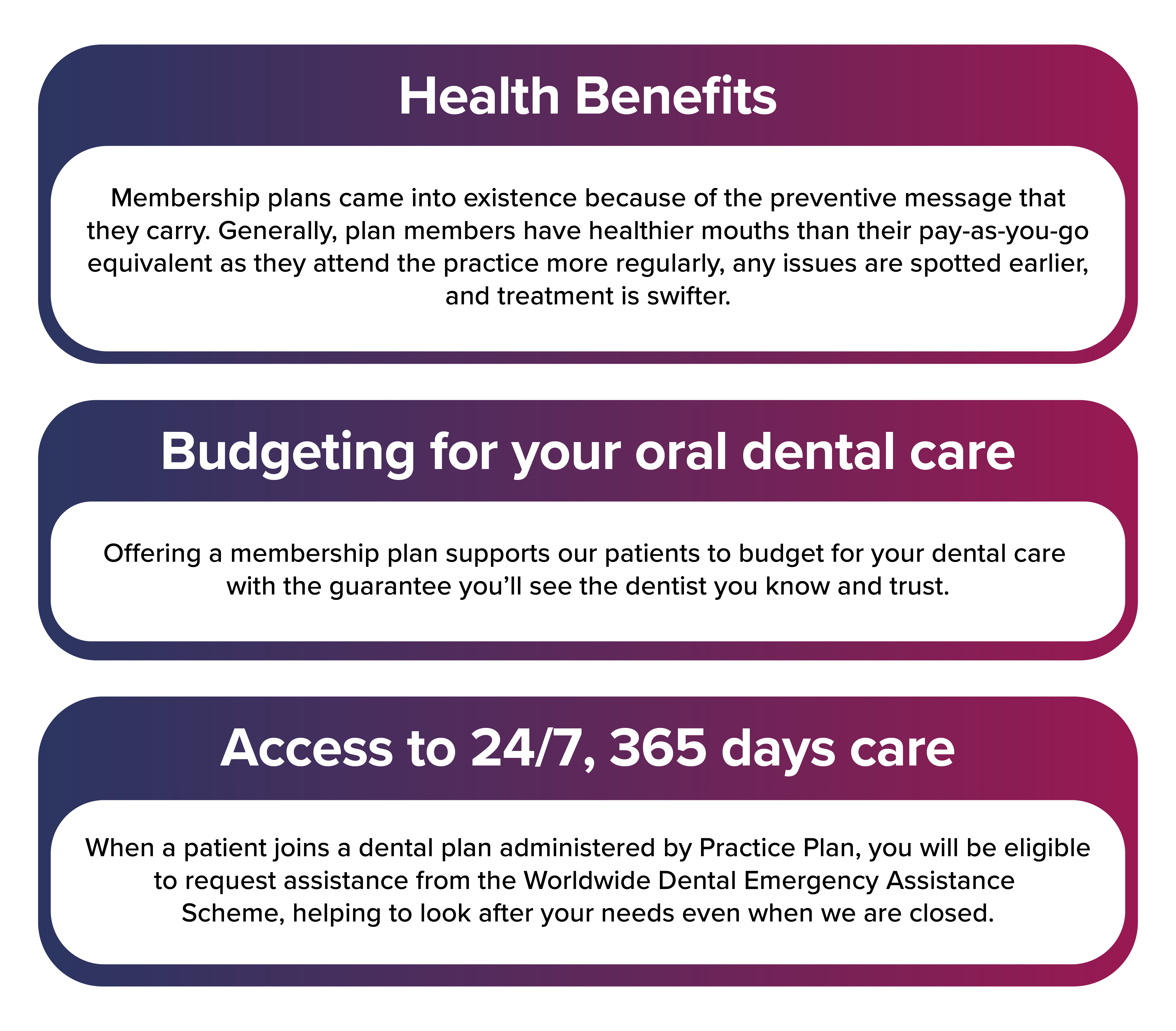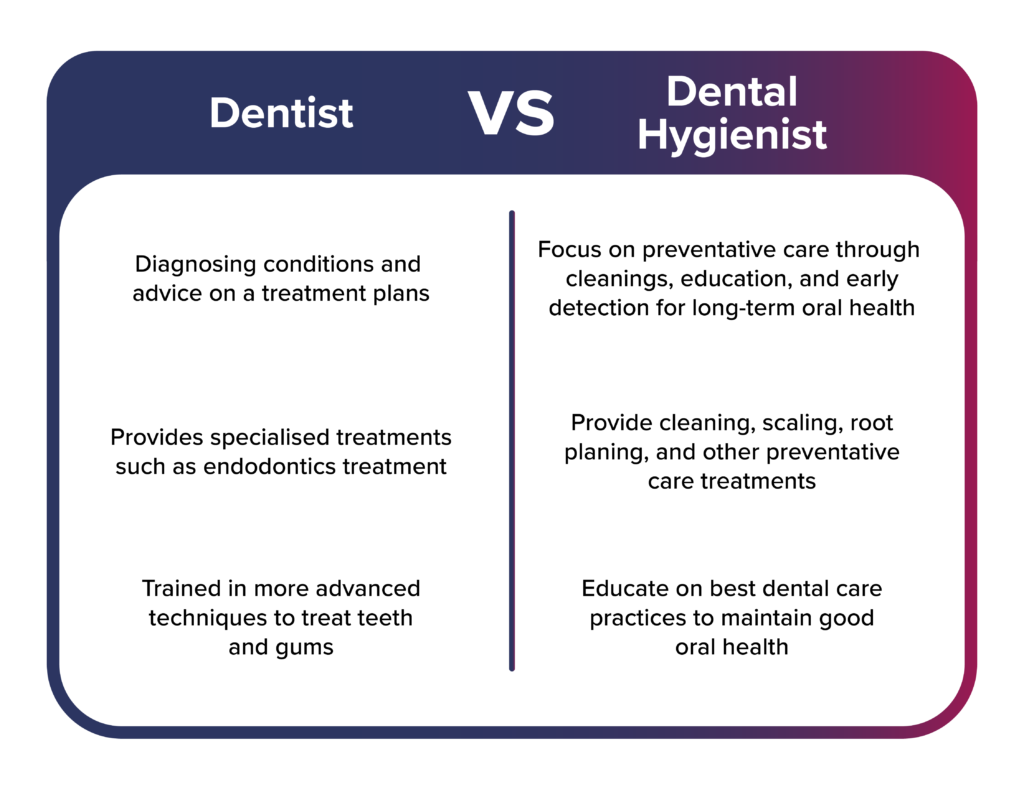Our Services
Quick links
We provide dental care for Practice plan, Private and NHS for under 18’s and exempt patients.


Exceptional Dental Care
At Newport Dental Practice, we are committed to providing our patients with the highest standard of dental care. Our experienced team of dental professionals are dedicated to maintaining your oral health and helping you achieve a beautiful, confident smile.
Comprehensive Services
From routine check-ups and cleanings to advanced restorative and cosmetic treatments, we offer a wide range of dental services to cater to all your oral health needs. Our state-of-the-art facility and cutting-edge technology ensure that you receive the highest quality of care.
A dentist is a licensed medical professional who diagnoses and treats oral health issues, performs surgeries, and prescribes medications, while a dental hygienist focuses on preventive care, such as teeth cleaning, oral health education, and assisting the dentist with routine procedures.
Seeing our hygienist
- We have a hygienist in practice on Tuesdays and Thursdays this is part of your practice plan (not included on plan A)
- More adult teeth are lost due to gum disease than tooth decay, making regular dental hygiene treatments essential for maintaining healthy gums and teeth. Routine visits to a hygienist, along with dental check-ups and proper at-home care, can significantly improve the appearance of your teeth and overall oral health.
- A range of hygienist services is available, including scale and polish treatments, preventative fluoride applications, AIR-FLOW therapy, and cosmetic stain-removing treatments.
What happens
at a hygienist appointment?
Hygienists provide professional teeth cleaning, known as scaling and polishing. During your appointment, the hygienist will perform an initial dental hygiene examination and then:
- Scale your teeth to remove plaque and tartar in areas that are hard to reach with brushing
- Clean and polish to remove superficial stains
- Offer personalized advice on maintaining good dental health, including tips you can practice at home
Your hygienist will also provide guidance on diet and preventing tooth decay. They can detect early signs of gum disease and may refer you to a dentist or periodontist if further treatment is needed.
How often should I visit a hygienist?
Your dentist might recommend regular hygienist visits based on your clinical needs, as well as your personal preference for keeping your teeth cleaned and polished. A thorough cleaning with a hygienist might also be suggested before starting more complex dental treatments, such as dental implants. “Protect against gum disease and tooth decay by visiting your hygienist regularly. A deep clean will help you maintain excellent oral hygiene.”
General Dental Treatment
Examinations and Diagnosis
Regular dental check-ups are important, but the frequency varies based on individual needs:
- Low-risk individuals: People with healthy gums, good oral hygiene, and no history of dental issues may only need a check-up every 12 to 24 months. Their risk of developing issues is lower, so they can go longer between visits.
- Moderate-risk individuals: Those who might occasionally develop minor issues, like small cavities or mild gum inflammation, are often advised to visit every 6 to 12 months.
- High-risk individuals: If someone has a history of frequent cavities, gum disease, or other ongoing oral health issues, they may need a check-up every 3 to 6 months to manage potential problems early.
Your dentist’s recommendation considers your unique oral health situation, which might include factors like oral hygiene, diet, genetics, and lifestyle (e.g., smoking). They can adjust the check-up frequency based on changes they see over time.
Crown and Bridge
Dental restorations like bridges, crowns, and fillings each serve specific purposes and are selected based on the patient’s dental needs:
Bridges
- Purpose: Replaces one or more missing teeth by anchoring an artificial tooth (or teeth) to the surrounding teeth.
- Materials: Typically crafted from a combination of precious metal and porcelain for durability and aesthetics.
- Fixed Nature: Unlike dentures, bridges are fixed and remain in place permanently once attached to the supporting teeth.
Crowns
- Purpose: Crowns act as a protective cap over a damaged, decayed, or cosmetically unappealing tooth.
- Materials: Commonly made from metal, porcelain fused to metal, or ceramic. The material choice depends on the location of the tooth and aesthetic needs.
- Procedure: The tooth is reshaped into a peg, over which the crown is securely fitted. This process usually requires a couple of visits since the crown is custom-made in a dental lab.
Restorative fillings
- Purpose: Restores a tooth with decay or a cavity by filling the hole and preventing further damage.
- Materials: The standard filling material is amalgam, a metal mixture including mercury, silver, tin, and copper. Alternatively, white (composite) fillings are available and can be more aesthetically pleasing, especially for visible areas.
- Type: Your dentist will choose the most suitable filling based on the tooth’s location, your bite, and cosmetic considerations.
Each type of restoration aims to protect tooth integrity, restore function, and, when possible, enhance appearance.
Endodontics
Root canal treatment, also known as endodontics, is a procedure aimed at treating infections deep within a tooth’s structure.
This infection impacts the dental pulp—the soft tissue inside the root canal, which can become compromised by bacteria entering through:
- Tooth decay
- Leaky fillings
- Trauma (e.g., a cracked or broken tooth from an accident)
Tooth Anatomy
Understanding the basic structure of a tooth helps explain why a root canal is sometimes necessary:
- Crown: The visible top part of the tooth.
- Root: The part that extends into the jawbone, anchoring the tooth.
- Enamel: Hard outer layer of the tooth.
- Dentine: The layer under the enamel that makes up most of the tooth.
- Cementum: A hard layer covering the root surface.
- Dental pulp: The soft tissue inside the root canal containing nerves and blood vessels.
The root canal system is a network within the tooth that houses the pulp, extending from the crown to the root tip. A single tooth may have multiple root canals.
When Root Canal Treatment Is Needed
Root canal treatment becomes necessary when a bacterial infection damages the pulp. An X-ray can reveal this, often indicated by symptoms like:
- Pain when eating or drinking (especially with hot or cold substances)
- Pain when biting or chewing
- A loose tooth
If untreated, the pulp dies, and initial symptoms may disappear, giving the false impression of healing. However, the infection persists and spreads deeper, leading to:
- Returning pain when biting
- Swelling near the affected tooth
- Pus discharge from the tooth
- Swollen cheek or jaw
- Darkened tooth colour
It’s essential to see a dentist at the first sign of tooth pain because the pulp cannot self-heal. The longer the infection is present, the less likely a root canal treatment will succeed.
Antibiotics and Root Canal Treatment
While antibiotics can help if the infection has spread beyond the root canal, they’re not effective for treating the infection within the root canal itself.
This is why the procedure is necessary to clean out the infection directly from inside the tooth and save it from needing extraction.
Dental Emergency
If you need to see an NHS dentist out of hours Call NHS 111 to find an out-of-hours dental service near you. Do not contact a GP, as they will not be able to offer emergency or out-of-hours dental care. If you’re in pain while waiting to see a dentist, take painkillers such as paracetamol or ibuprofen. NHS 111 can also offer other self-care advice.
If you need to see a practice plan dentist out of hours – Call the helpline for help to find a practice locally 0808 1698117
Emergency dental treatment involves addressing urgent dental issues that require immediate care to alleviate severe pain, stop bleeding, save a tooth, or prevent infection. Dental emergencies often arise suddenly, making it important to act quickly. Some common dental emergencies include:
- Toothache: Persistent or severe pain that can indicate decay, infection, or other underlying issues.
- Knocked-out tooth: Immediate action can increase the chances of saving the tooth.
- Abscess or infection: Can lead to severe pain, swelling, and serious complications if untreated.
- Broken or lost crown: Leaves the underlying tooth vulnerable.
- Trauma or injury: Any sudden impact to the mouth or teeth that causes damage.
Advaned Dental Whitening
Pages
© 2024 Newportdentalpractice



